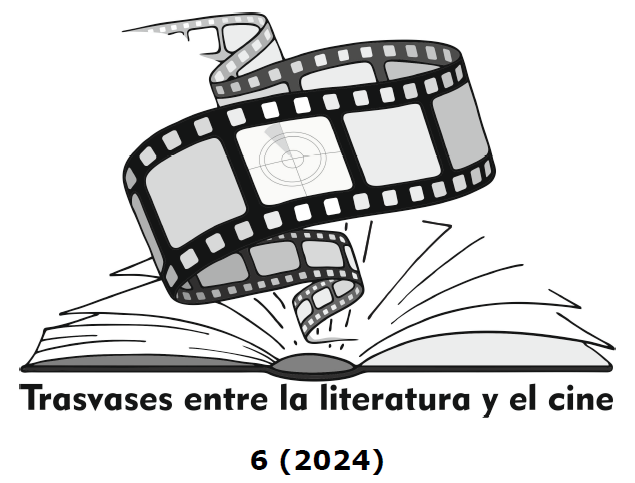Spider: The hallucination as a spring of reality
DOI:
https://doi.org/10.24310/tlc.6.2024.19759Keywords:
Body, Hallucination, Writing, Language, MemoryAbstract
The objective of this article is to show the way in which Cronenberg addresses the question of hallucination, in the particular case of Spider, as well as to situate it in the whole of his work. From a comparative analysis between McGrath's novel and Cronenberg's adaptation, the role of hallucination in both proposals will be observed, focusing on the fact that it goes beyond being a simple effect of schizophrenic symptomatology. At the same time, it will be analyzed, as a conclusion, how Spider, based on the axis of hallucination, will become the culmination of the series begun in Videodrome, and subsequently continued by Dead Ringers, Naked Lunch and eXistenZ and which shows in in what way Cronenberg's ontology is gestated by the indefinition of reality.
Downloads
Metrics
Publication Facts
Reviewer profiles N/A
Author statements
Indexed in
-
—
- Academic society
- N/A
- Publisher
- Universidad de Málaga
References
BENJAMIN, Walter (2018), Iluminaciones, trad. de J. Aguirre y R. Blatt, Barcelona, Taurus.
BERGSON, Henri (2007), Materia y memoria, trad. de P. Ires, Buenos Aires, Cáctus.
GOROSTIZA, Jorge y Ana PÉREZ (2002), David Cronenberg, Madrid, Cátedra.
FERNÁNDEZ GONZALO, Jorge (2019), Políticas de la Nueva Carne. Perversidades filosóficas en David Cronenberg, Salamanca, Holobionte.
HEIDEGGER, Martin (1994), Conferencias y artículos, trad. de E. Barjau, Barcelona, Serbal.
LACAN, Jacques (2013), Escritos (I), trad. de T. Segovia y A. Suárez, Madrid, Siglo XX.
LACAN, Jacques (2015), El deseo y su interpretación, trad. de G. Arenas, Buenos Aires, Paidós.
LIEBRAND, Claudia (2011), «Trauma and Narration in David Cronenberg's Spider», PSYART [En línea: https://psyartjournal.com/article/show/liebrand-trauma_and_narration_in_david_cronenberg. Fecha de consulta: [05-02-2024].
MCGRATH, Patrick (2002), trad. de J. Escarré, Spider, Barcelona, La Magrana.
RODLEY, Chris (ed.) (2000), David Cronenberg por David Cronenberg, trad. de J. Lago, Barcelona, Alba.
PEDRAZA, Pilar (2002), «Teratología y nueva carne» en A. J. Navarro (ed.), La Nueva Carne. Una estética perversa del cuerpo, Madrid, Valdermar, págs. 35-72.
SKLAR, Jonathan David y Andrea SABBADINI (2008), «Cronenberg's Spider: Between confusion and fragmentation», International Journal of Psychoanalysis, 2, págs. 427-32.
TODOROV, Tzvetan (2013), Los abusos de la memoria, trad. de M. Salazar Barroso, Barcelona, Paidós.
ŽIŽEK, Slavoj (2011), El acoso de las fantasías, trad. de C. Braunstein Saal, Madrid, Siglo XXI.
Downloads
Published
How to Cite
License
Copyright (c) 2024 Oriol Alonso Cano

This work is licensed under a Creative Commons Attribution-NonCommercial-ShareAlike 4.0 International License.
All authors published in this journal accept the following copyright terms:
a. Authors retain their authors´ rights (copyright) and grant First Publication Rights to the journal, which whill be published under a the Creative Commons Attribution-NonCommercial-ShareAlike 4.0 International (CC BY-NC-SA 4.0) license. All about this license is available in the following link: <http://creativecommons.org/licenses/by-nc-sa/4.0>
b. Authors may separately establish additional agreements for the non-exclusive distribution of the version of the work published in the journal (e.g. including it in an institutional repository, or publishing it in a book) with an acknowledgement of its initial publication in this journal.
c. Authors are allowed and encouraged to disseminate their work electronically (e.g. in institutional repositories or on their own website) as this can lead to productive exchanges, as well as earlier and more extensive citation of published work.
The author is responsible for obtaining permission from the copyright holder when using copyrighted materials.
This electronic journal is published by University of Málaga (UmaEditorial), thus it is necessary to cite the origin of any partial or total reproduction.








22.png)










